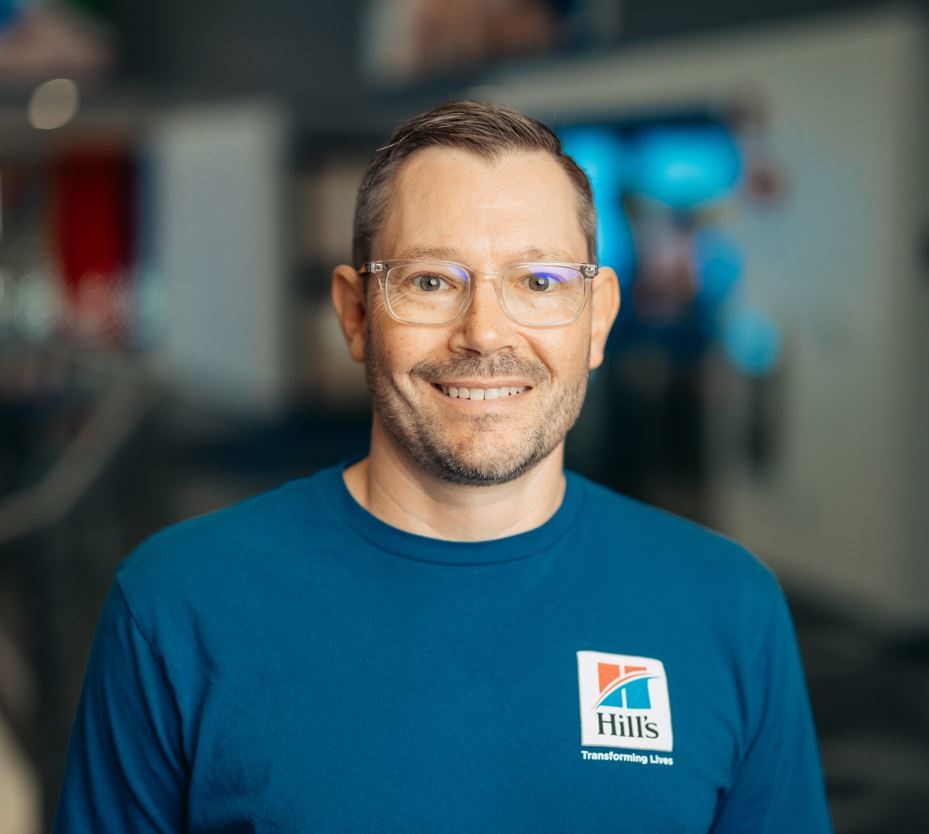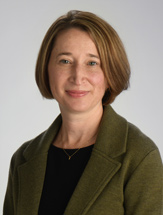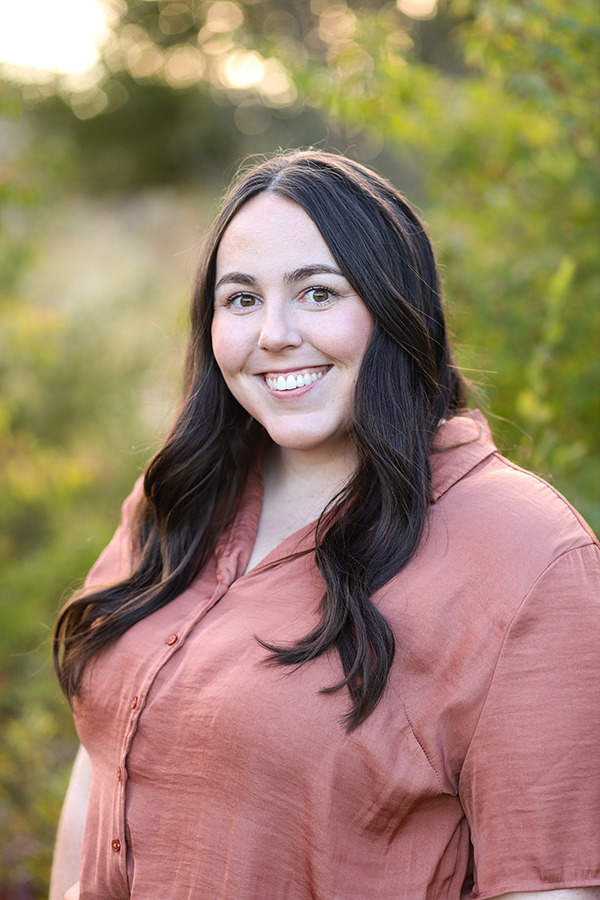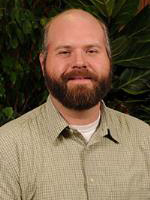Kansas City One Health Day
- K-State home
- K-State Olathe
- About
- Events
- One Health Day
Food as Medicine
11:30 a.m. to 3 p.m. | Nov. 1
Join us for KC One Health Day on Friday, Nov. 1 at the KU Edwards Campus. This year's theme is Food as Medicine and will focus on the impact of how food impacts human health, animal health and the role our environment plays in providing nutritious, healthy foods.
Discover the complexity of food and learn how nutrition impacts the overall health of both humans and animals.
Location:
KU Edwards Best Conference Center
12604 Quivira Road, Overland Park, KS, 66213
What is Food as Medicine?
Food as Medicine focuses on the understanding that nutrition and food play a role in the health and lifestyle of humans and animals. The primary goal of this concept is to support enhanced nutrition and overall wellbeing through access to nutritional food options, including how we grow our food and environmental factors.
What is One Health Day?
One Health Day is an international event every fall. It highlights and celebrates the complex interrelationships between human, animal and environmental health — called One Health.
Kansas City One Health Day is our local celebration. The annual event is a collaboration by K-State Olathe, BioNexus KC, the KU Edwards Campus and University of Kansas Medical Center.
Agenda
10:45 – 11:30 Set Up for Posters and Judges
Judges and Poster presenters have lunch
11:30 – 1:00 Lunch and Poster Viewing
1:00 – 3:00 One Health Day Program
Welcome
- Stuart Day, Ph.D. — KU Edwards, Vice Provost and Dean
Human Health
- Heather Gibbs, Ph.D., RD, LD — KUMC, Assistant Dean, Student Affairs, School of Health Professions; Director, M.S. in Dietetics and Nutrition
Animal Health
- Laura Motsinger, Ph.D., MBA — Hill’s Pet Nutrition, Senior Scientist, Global Clinical Nutrition and Claims
- Michael Faurot, D.V.M. — Hill’s Pet Nutrition, Director of Global Clinical Nutrition and Claims
Environment Health
- Cary Rivard, Ph.D. — K-State, Professor and Extension Specialist, Department of Horticulture and Natural Resources; Director of the Olathe Horticulture Research and Extension Center
Panel discussion | Questions and Answers with the Speakers
- Kael Martin — Moderator
Student Poster Awards and Closing Comments
- Ben Wolfe, Ph.D. — K-State Olathe, Dean and CEO
- Dennis Ridenour — BioNexus KC, President
Speaker bios
Michael Faurot, D.V.M.
 Michael Faurot received his undergraduate degree in biology from Washburn University in Topeka, KS in 2002 and his DVM from Kansas State University in 2006. He has had a diverse professional career as a veterinarian and an educator with roles as a small animal emergency and private practitioner, an adjunct professor, a regulatory veterinarian with experience in both state and federal government, and most recently in industry, serving in multiple different roles with Hill’s Pet Nutrition. His most recent role was Director of Regulatory Affairs for Hill’s U.S. / Canada. He now serves as the Director of Global Clinical Nutrition and Claims. Faurot stays active in veterinary practice, serving as relief practitioner at a local small animal clinic. Faurot's professional interests include companion animal medicine and nutrition, federal and state government affairs and education.
Michael Faurot received his undergraduate degree in biology from Washburn University in Topeka, KS in 2002 and his DVM from Kansas State University in 2006. He has had a diverse professional career as a veterinarian and an educator with roles as a small animal emergency and private practitioner, an adjunct professor, a regulatory veterinarian with experience in both state and federal government, and most recently in industry, serving in multiple different roles with Hill’s Pet Nutrition. His most recent role was Director of Regulatory Affairs for Hill’s U.S. / Canada. He now serves as the Director of Global Clinical Nutrition and Claims. Faurot stays active in veterinary practice, serving as relief practitioner at a local small animal clinic. Faurot's professional interests include companion animal medicine and nutrition, federal and state government affairs and education.
Heather Gibbs, Ph.D., RD, LD
 Heather Gibbs, Ph.D., RD, LD, is an associate professor at the University of Kansas Medical Center, where she brings her expertise in nutrition and dietetics to both research and education. With a Ph.D. in Food Science and Human Nutrition and a registered dietitian (RD) credential, Gibbs has over 20 years of experience in advancing nutritional science and promoting health through diet.
Heather Gibbs, Ph.D., RD, LD, is an associate professor at the University of Kansas Medical Center, where she brings her expertise in nutrition and dietetics to both research and education. With a Ph.D. in Food Science and Human Nutrition and a registered dietitian (RD) credential, Gibbs has over 20 years of experience in advancing nutritional science and promoting health through diet.
In the classroom, Gibbs has taught a two-semester course in medical nutrition therapy for over a decade, fostering a commitment to evidence-based nutrition practice in the next generation of clinical dietitians. Her research interests encompass developing and implementing nutrition interventions for clinic and mobile settings that use clear communication and patient-centered education techniques. She is known internationally in the nutrition research community for her pioneering work in nutrition literacy. Gibbs is dedicated to improving the delivery of nutrition care to support high diet quality and healthy outcomes for children and adults.
Outside academia, Gibbs enjoys sharing life and adventuring with her husband, marveling at the amazingness of her three daughters, being walked daily by her Lahsa-Poo (Sadie) and crocheting things she may never wear. She looks forward to sharing insights on how food is medicine and its implications for overall health and wellness.
Kael Martin
 Kael Martin joined Health Forward in 2023 as an impact strategist in the People purpose area. His work focuses on diversifying Kansas City’s health system and exploring the “Food as Medicine” movement. Prior to joining Health Forward, Martin was a community health operations manager at University Health. Martin has an extensive background in advancing health equity through affordable housing and community and population health efforts. He has a Masters of Public Administration from Park University and a Bachelor of Science in Organizational Communication from Northwest Missouri State University.
Kael Martin joined Health Forward in 2023 as an impact strategist in the People purpose area. His work focuses on diversifying Kansas City’s health system and exploring the “Food as Medicine” movement. Prior to joining Health Forward, Martin was a community health operations manager at University Health. Martin has an extensive background in advancing health equity through affordable housing and community and population health efforts. He has a Masters of Public Administration from Park University and a Bachelor of Science in Organizational Communication from Northwest Missouri State University.
Laura Motsinger, Ph.D., MBA
 Laura Motsinger, Ph.D., MBA, obtained bachelor’s degrees in animal science and agricultural business from Northwest Missouri State University in 2017. Following completion of her undergraduate program, Motsinger graduated from Utah State University in 2022 with a Ph.D. in animal nutrition and growth biology where her research focused on investigating how nutrition and exogenous compounds impact growth, production and meat quality attributes of cattle, swine and avian species and examining the molecular mechanisms through which nutrition impacts skeletal muscle growth. In the latter half of 2022, Motsinger obtained a master’s degree in business administration from Northwest Missouri State University and began a postdoc at the University of Georgia, specializing in nutritional and cellular influencers of skeletal muscle growth and their relation to meat quality attributes and shelf-life stability. In January 2023, Motsinger began in her current role as a senior scientist on the Global Clinical Nutrition and Claims team at Hill’s Pet Nutrition. Throughout her career, Motsinger has authored/co-authored several publications, including 14 peer-reviewed journal articles, 23 abstracts, 2 fact sheets and 1 book chapter. Motsinger is passionate about sarcopenia and nutritional support for aging pets; however, her recent research efforts have focused on supporting dogs and cats with dermatological sensitivities, gastrointestinal upset, urinary issues and cognitive decline.
Laura Motsinger, Ph.D., MBA, obtained bachelor’s degrees in animal science and agricultural business from Northwest Missouri State University in 2017. Following completion of her undergraduate program, Motsinger graduated from Utah State University in 2022 with a Ph.D. in animal nutrition and growth biology where her research focused on investigating how nutrition and exogenous compounds impact growth, production and meat quality attributes of cattle, swine and avian species and examining the molecular mechanisms through which nutrition impacts skeletal muscle growth. In the latter half of 2022, Motsinger obtained a master’s degree in business administration from Northwest Missouri State University and began a postdoc at the University of Georgia, specializing in nutritional and cellular influencers of skeletal muscle growth and their relation to meat quality attributes and shelf-life stability. In January 2023, Motsinger began in her current role as a senior scientist on the Global Clinical Nutrition and Claims team at Hill’s Pet Nutrition. Throughout her career, Motsinger has authored/co-authored several publications, including 14 peer-reviewed journal articles, 23 abstracts, 2 fact sheets and 1 book chapter. Motsinger is passionate about sarcopenia and nutritional support for aging pets; however, her recent research efforts have focused on supporting dogs and cats with dermatological sensitivities, gastrointestinal upset, urinary issues and cognitive decline.
Cary Rivard, Ph.D.
 Cary Rivard, Ph.D., grew up working in his family’s greenhouse business in Kansas City, Missouri, and received his B.S. in agriculture sciences and biology from Truman State University in 2004. He received his M.S. and Ph.D. in Plant Pathology from North Carolina State University in 2007 and 2010, respectively, and worked at the Center for Environmental Farming Systems while there. Cary is a professor and extension specialist at Kansas State University in the Department of Horticulture and Natural Resources, and is director of the Olathe Horticulture Research and Extension Center. His research program focuses on sustainable farming production systems and current projects include vegetable grafting, high tunnel production, reducing food losses and agrivoltaics. He also oversees the Growing Growers beginning farmer program (www.growinggrowers.org), which seeks to develop new diversified growers in the region.
Cary Rivard, Ph.D., grew up working in his family’s greenhouse business in Kansas City, Missouri, and received his B.S. in agriculture sciences and biology from Truman State University in 2004. He received his M.S. and Ph.D. in Plant Pathology from North Carolina State University in 2007 and 2010, respectively, and worked at the Center for Environmental Farming Systems while there. Cary is a professor and extension specialist at Kansas State University in the Department of Horticulture and Natural Resources, and is director of the Olathe Horticulture Research and Extension Center. His research program focuses on sustainable farming production systems and current projects include vegetable grafting, high tunnel production, reducing food losses and agrivoltaics. He also oversees the Growing Growers beginning farmer program (www.growinggrowers.org), which seeks to develop new diversified growers in the region.
Admission is $30 and supports student awards. Admission for students and teachers is $15.
Student Involvement
High school and college students (both undergraduate and graduate) are encouraged to present a research poster and compete for cash scholarships at KC One Health Day.
Newsletter
Subscribe to the One Health Newsletter to stay up-to-date with news, activities and events about One Health.